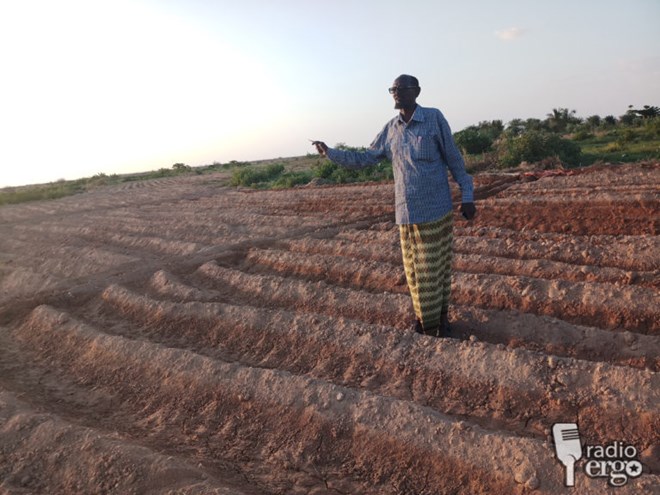
Wednesday July 8, 2020

(ERGO) – Nuuro Mohamed Hussein, 55, is worried about how she will manage to meet the needs of her family of 14 children, after two consecutive ruined harvests on their small farm in Amaara in central Somalia’s Mudug region.
After their crops were eaten up by waves of voracious locusts late last year, a second disaster struck as the rains they were expecting have failed to come.
The sesame, watermelons, papaya, beans, maize, and other crops she and her family planted at the end of March and early April on their five-hectare plot mostly came to nothing.
Nuuro’s family are among 450 small-scale farming families in Amaara, who rely on the rain for irrigation.
In a good year she would make around $2,500 from this season’s harvest, Nuuro told Radio Ergo, which would adequately cover the needs of her large family, including school fees for six children.
However, due to the poor harvest on their farm four kilometres from Amaara town, they are having to take food and supplies on credit from local stores, not knowing when they can pay back the debts. Her husband is unable to work due to illness, so she has to be creative to keep the family fed.
“We sometimes slaughter an animal and sell the meat, other times I ask relatives for support, or share the support that siblings send to my mother who’s living here with us,” Nuuro said.
The head of the farmers’ cooperative in Amaara, Abdi Mohamed Elmi, said that the community has suffered in the past from poor or late rains, but what hit them hard this time is the fact they their savings were already wiped out from last year.
“If the losses are like last year, when the farms in this area were devastated by the invasions of locusts, many farmers might just quit farming,” Elmi said despairingly.
Abshir Abdi Jirow, who has been farming in Amaara for 30 years, told Radio Ergo that he had been counting on selling his crops and produce around this time, but he has nothing to sell.
His biggest worry is how to repay the $1,300 he had borrowed to buy seeds and other farming inputs. He has to borrow more money on top of that loan to cover his family’s immediate needs as well as to prepare the land for the next rains due in September.
Yusuf Salad Mohamud, the area commissioner, told Radio Ergo that he sent an appeal for help to relief agencies and the Galmudug state authorities. The World Food Programme (WFP) responded by distributing food aid to 500 farmers and other needy families in the area to get them through this difficult period.
“The local authorities don’t have reserves or other means to help these families, so all we could do was to alert the aid organisations and our seniors in Galmudug state,” he said.